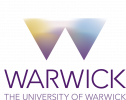© Pint of Science, 2025. All rights reserved.
Untangling DNA
Dr Nicholas Jackson
(Warwick Mathematics Institute, University of Warwick)
Mathematicians have investigated the geometric properties of knots since the late 19th century, as part of the field of topology: the mathematical study of deformations of shapes. Over the last thirty years, this subject has turned out to have interesting connections with genetics and biochemistry. An important class of enzymes called topoisomerases perform knotting, unknotting, tangling and supercoiling on strands of DNA, which affects genetic replication and recombination. Join Nicholas as he discusses how mathematicians and geneticists are working together to understand these mechanisms.
The DNA Double Act
Dr Robert Spooner
(Senior Teaching Fellow, University of Warwick)
Professor Kevin Moffat
(School of Life Sciences, University of Warwick)
Who discovered DNA? Well, the double act Watson and Crick - right? Well, not according to Kevin and Robert, who will introduce you to a host of “lesser known” pairs that helped to pioneer the discovery, sequencing and understanding of DNA. Exploring historical events, the 100,000 Human Genome project and beyond; this talk literally has “something for everyone” as genetic research paves the way to personalised medical treatments. Even DNA likes a companion – just look at its structure! So, why not bring a friend and come along to find out more about DNA, and who really did discover it!
Hacking the code of life
Dr Clare Garcin
(Research Fellow)
Imagine your genetic code as a recipe to build a human. Now imagine that there is a typo in the recipe – add plain flour instead of self-raising! A small mistake might have devastating consequences for baking a cake or for generating a fully functional human. Luckily for us, just like when typing a cake recipe, there is a kind of cut and paste that can be used to correct mistakes or enhance the product. Even if we can alter the recipe, is it always right to do so? Clare will explore how ‘hacking the code of life’ works, and the ethical issues surrounding it.
Map data © OpenStreetMap contributors.

